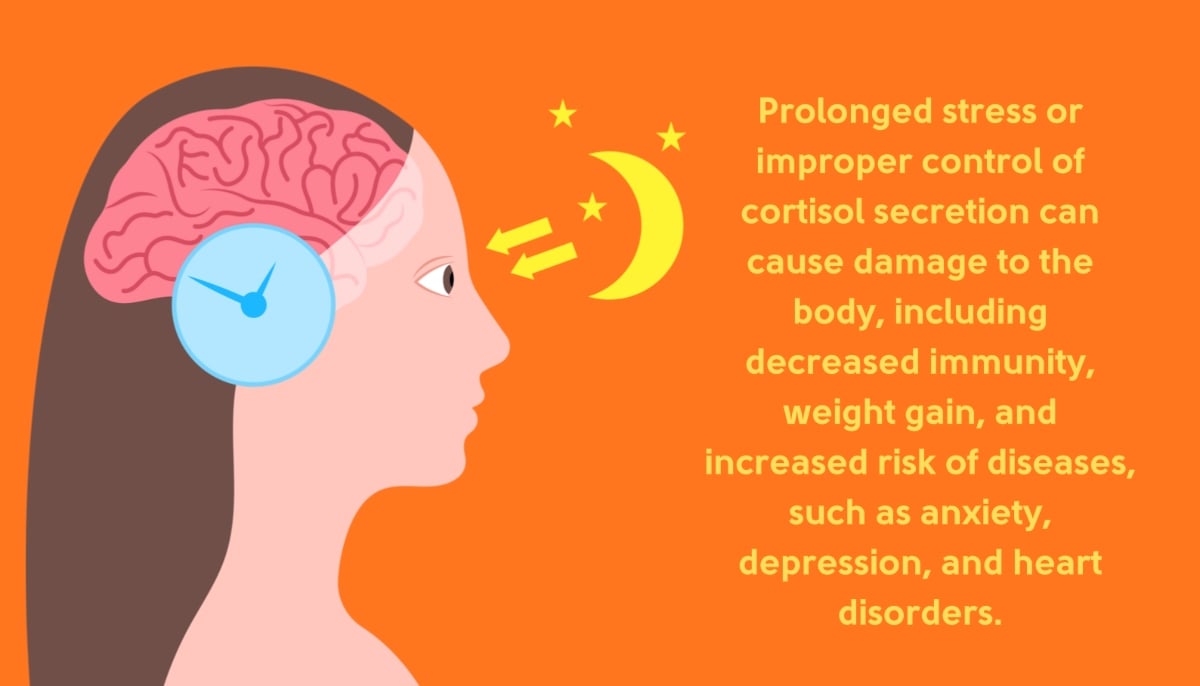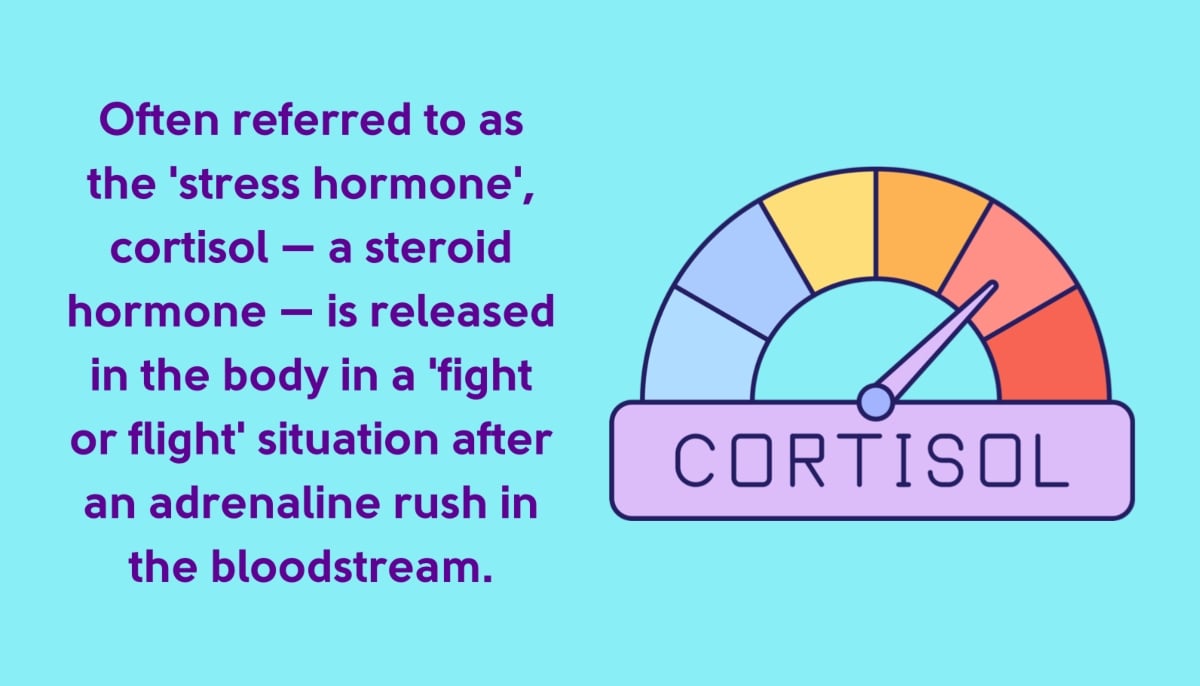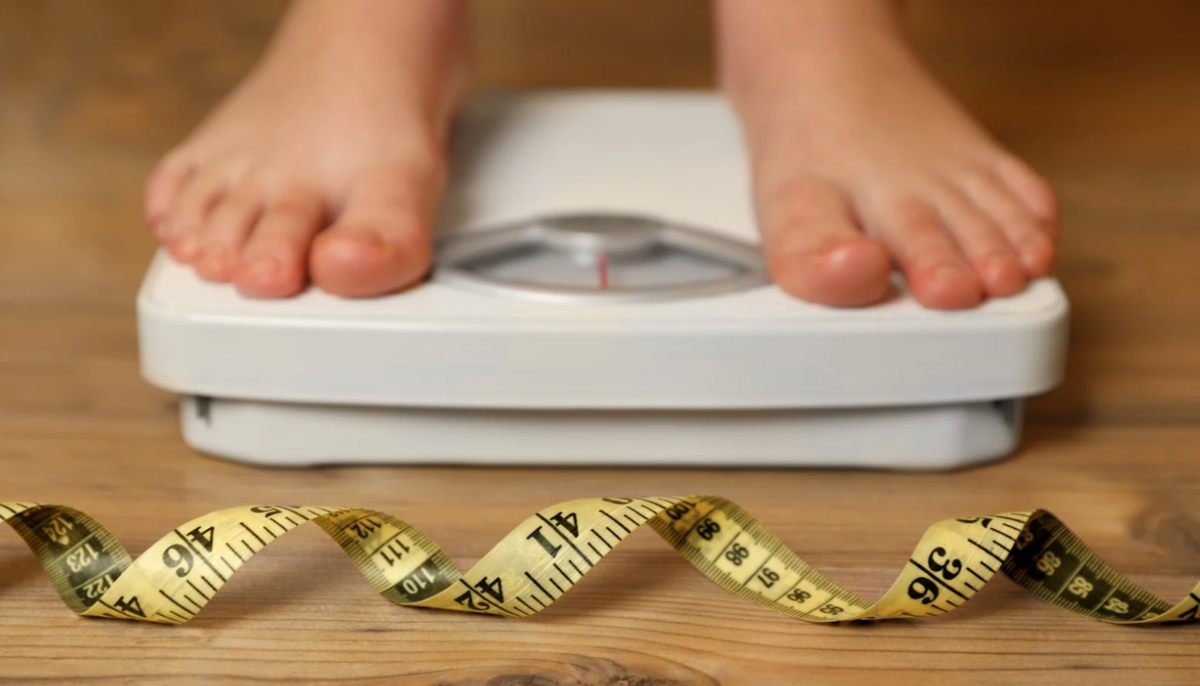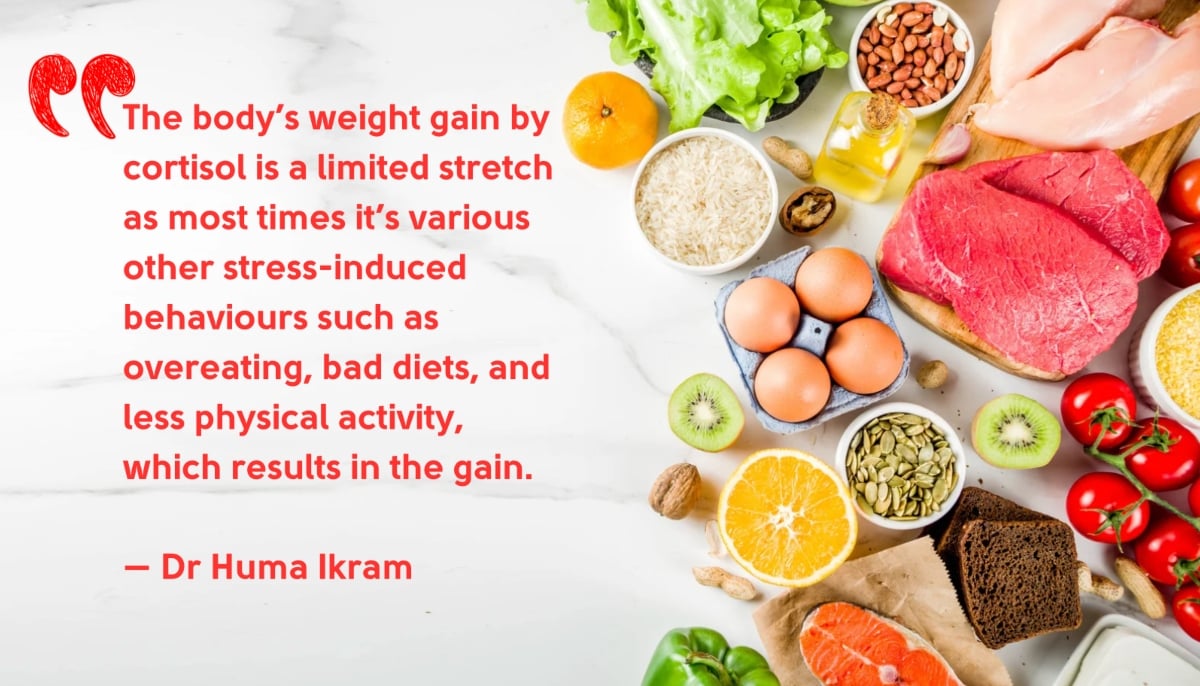Influencers, social media doctors as well as quacks claim to have miraculously cracked the code for the root causes of women’s health problems, offering quick fixes and health hacks.
These claims, trending on different social media platforms, often point to ‘high cortisol’ as the culprit behind weight gain, acne, and insomnia.
This is often followed by a sponsored product which claims to work “wonders” for your health journey or a magical diet plan, with a promise to “transform” you, after you’ve “subscribed” to it.
But before you click on the tempting offer to finally become the healthiest version of yourself and dub cortisol as the sole culprit, you need to know what cortisol actually is.
What is cortisol?
Cortisol is a steroid hormone produced by the adrenal glands, which are located above the kidneys. It helps manage your body’s response to stress by regulating blood sugar, blood pressure, and metabolism.
Often referred to as the ‘stress hormone’, cortisol is released in the body in a ‘fight or flight’ situation after an adrenaline rush in the bloodstream.
Dr Huma Ikram, Assistant Professor at the University of Karachi explains cortisol is a steroid hormone produced by adrenal glands located on top of each kidney.
“The brain signals the release of the hormone in order to metabolise fats, proteins, and carbohydrates thereby turning them into energy, regulating blood sugar levels and blood pressure, in times of stress.”
She further notes that while cortisol has a significant function in response of the body to stress but “prolonged stress or improper control of cortisol secretion can cause damage to the body, including decreased immunity, weight gain, and increased risk of diseases, such as anxiety, depression, and heart disorders”.

Experts have claimed that stress among people is at an all-time high and women tend to be more stressed out than men. Dr Mahnoor Zaheer, a licensed medical practitioner, who provides specialised services in aesthetic medicine at her clinic in Lahore, sheds light on the matter.
“Women tend to stress out more than men as their stress response to it is greater,” Dr Mahnoor said.
“Considering Pakistani households, women are often going through chronic stress given their social and traditional responsibilities.
“In Pakistani culture, women often bear the brunt of social and traditional responsibilities, which can lead to chronic stress.
“This stress, coupled with habits like excessive sugar intake and tea consumption, contributes to the overall stress load,” Dr Mahnoor explained
Social media’s beef with cortisol
“[Content on high cortisol] is not as big a hype here in Pakistan yet, but it certainly is abroad,” Karachi-based journalist-turned-fitness trainer Fatima Niazi remarks on the trend. “I know this because I follow a lot of these pages online.”
However, Fatima observes that it doesn’t take away from the fact that viral health content is readily seeping into our lives. She recounts many of her clients asking about the inflammation diet that went viral after actress Vidya Balan spoke about it in a video.
In that video, the Bollywood actress shares how all her life she “struggled to be thin” as she “dieted like crazy, exercised like crazy” but she couldn’t lose weight; until one day, she was told she had inflammation. She goes on to reveal that she hasn’t exercised “all year” after she was put on a diet to “eliminate the inflammation” which is often a result of prolonged stress.
Dr Huma informs that release of cortisol can prove beneficial especially during exercise, where it “helps mobilise energy and repair tissues”, provided that it is only for a short time period.
Fatima adds that despite the social media trends, there isn’t enough awareness about stress management nor inflammation. She often finds herself reminding clients not to stress out their body with extreme workouts and to practice moderation.
“HIIT (high-intensity interval training) workouts should be done thrice a week, not every day because cortisol levels rise during such strenuous workouts,” she tells Geo.tv. “You just have to remain consistent and maintain a good diet during 80% of your day.”
Farheen Zaheer, an Islamabad-based corporate and development sector professional, who went on a transformative fitness journey, has encouraged and inspired many of her followers to invest in their health.
In a similar vein, she warns that not everything seen on social media is true.

“One can find motivation on social media but most of the times the health-related content can be very misleading,” she laments. “I keep telling my followers to not use any random meal plan you see on the internet as your body is different. One should make their own as each body has its own requirements according to age, weight, height etc.”
Farheen also emphasised that “nothing comes for free” referring to the ‘free’ diet plans and hacks that influencers advertise online.
“Why would anyone share their meal plans without money with anyone? Your dieticians and nutritionists charge you for consultation. Even when popular experts come onto TV shows, they will only share a few important things but will never disclose the hack,” she continues. “Compared to the standard of morning shows we have in Pakistan to the ones abroad, there is hardly any education on women’s health. There is a huge gap that needs to be filled in this regard.”
When does cortisol become villain?
Dr Huma explains that the body has a “natural rhythm throughout the day in which cortisol peaks in the morning, when waking up, and gradually diminishes during the day”. She adds that the hormone supports normal energy levels and metabolic functions by this rhythm.
Meanwhile, Dr Mahnoor maintains that the cortisol is not a ‘bad hormone’ and it only affects your health negatively when the stress is extended to long periods.
Apart from weight gain, insomnia, mood swings, high blood pressure, diabetes, prolonged exposure can result in much more serious conditions like cardiovascular diseases, Cushing’s Syndrome and osteoporosis.

For women in particular, Dr Huma lists down a plethora of conditions linked to high cortisol which includes disruption in menstruation cycles.
“Irregular periods, decreased fertility, or in some cases, even amenorrhea (absence of periods) could result from such effects. Another serious condition linked to high cortisol is polycystic ovary syndrome (PCOS), which worsens menopause symptoms such as hot flashes and mood swings. It also affects bone tissue with regards to reproductive health and could cause women to develop osteoporotic changes.”
However, Dr Huma goes on to reveal that being stressed does not automatically mean that the body is producing cortisol. “Stress increases cortisol, but there are other types of stress that are not conducive to increased cortisol production. Acute versus chronic stresses and the individual’s perception of stress and how they cope with it determines how much cortisol is produced.”
Apart from stress-induced release of cortisol, Dr Huma informs about illnesses like Cushing’s syndrome or even certain medications that trigger high levels of the hormone.
Addressing another popular myth connecting weight gain to cortisol, Dr Huma clarifies that it’s not entirely the case. “The body’s weight gain by cortisol is a limited stretch as most times it’s various other stress-induced behaviours such as overeating, bad diets, and less physical activity, which results in the gain.”

Both experts agree that social media has made information easily accessible but at the same time there is also spread of misinformation about many of the medical conditions. According to Dr Huma, women in Pakistan often lean towards traditional health practices rather than approaching a proper consultant for any medical issues.
“Most information on social media speaks of instant remedies or panaceas, which are not applicable to everyone, enticing some to self-diagnose or rely on unscientific usages.”
Dr Mahnoor concurs that professional guidance is crucial rather than relying on social media as a sole source of information. “I see a lot of adverts on social media and TV which are putting a spotlight on women’s health especially with regards to menstruation, menopause and postpartum care, but all this information cannot be fully relied upon. One should seek a professional medical doctor for your issues rather than seeking advice from Instagram doctors.”
Women and their constant state of stress
We’ve established that the release of cortisol is a reaction to a potentially dangerous situation. As told earlier, it is secreted after adrenaline in a fight-or-flight situation — for instance, consider being chased by a bear — as part of the body’s stress response.
However, the proverbial bear in modern women’s life ranges from a fast-approaching deadline, a daunting encounter with a boss or preparing a meal for a large crowd single-handedly. Now while these are stressful and high-pressure situations, they don’t put you in imminent danger, but the body considers these situations as such.

Despite their occupation or status, women are weighed down by social pressure of being the carers in a household, which often demands them to put their needs before others. In such scenarios, their health is the first to go under the guillotine.
Fatima observes that even when women want to focus on their health, not everyone has the luxury of maintaining a proper routine.
“Women, especially those who work, are under constant stress as they not only manage office work but also handle household responsibilities at home. Those living in joint families face additional challenges,” she acknowledges. “My clientele mostly has women from elite class, who have the option of hiring a help. Even if they are able to take an hour out for gym, they are rushing back home to cater to their commitments.”
“Most women don’t have time to relax or enjoy ‘me-time,’ which eventually affects them psychologically. Always on the go, they often skip working out or even taking a walk.”
Though, Fatima lauds women, who have carved out time for themselves despite their routines.
Meanwhile, Farheen encourages that small steps can actually help women shape a healthy routine and manage their stress levels. “If you could just include a 30-minute activity in your routine daily and stay consistent, it could slowly help improve your health. “Moreover, replacing junk food with home-cooked meals during eight-hour shifts will also make a difference.”
“If women focus on their health for their own sake, rather than trying to impress others, they will be able to achieve so much more in no time,” she concluded.
Cortisol may be a sign of stress, but the true challenge lies in the pressures women face. To bring about change, we must address the root causes and foster a society where well-being is a right for all.







